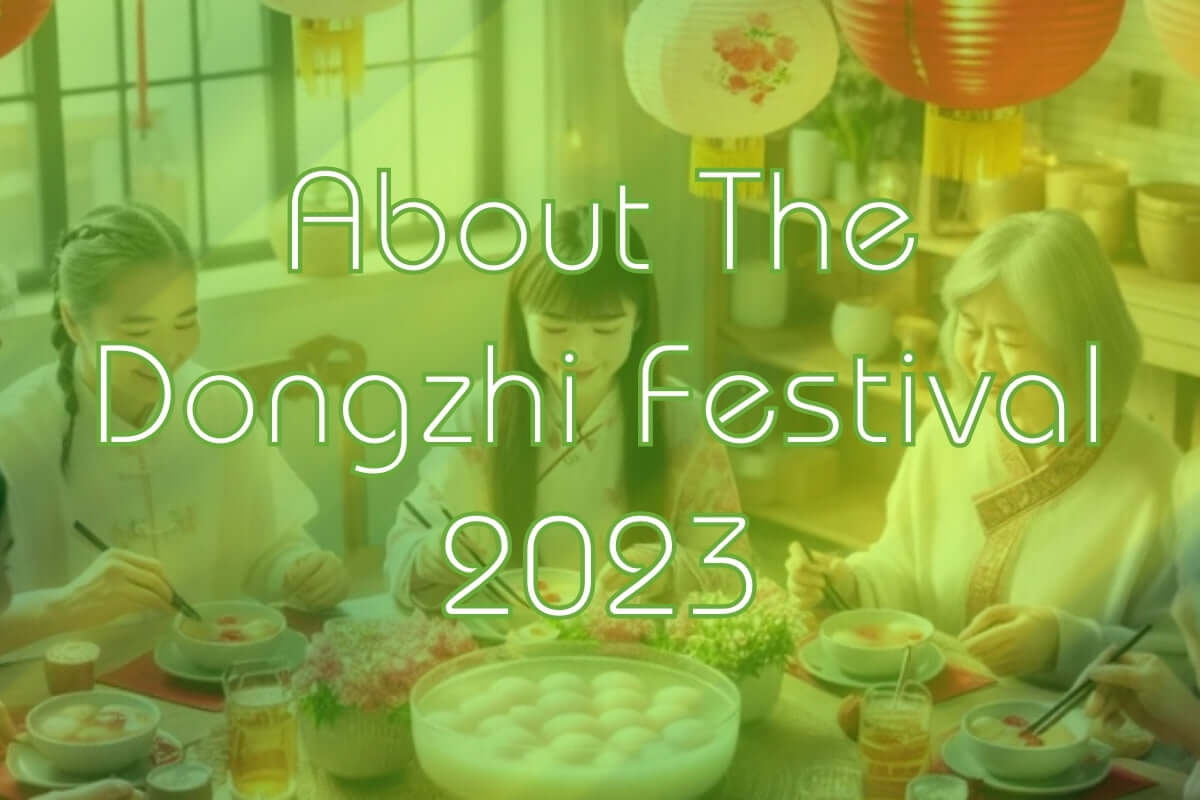As winter winds sweep across the Northern Hemisphere, various cultures welcome the season with unique celebrations and festivals. Among these is the Dongzhi Festival, a significant event in Chinese culture that marks the arrival of winter. We will explore the origins, significance, and traditions associated with Dongzhi, shedding light on why it holds a special place in the hearts of millions.

The Origins of Dongzhi Festival:
Dongzhi, also known as the Winter Solstice Festival, has deep roots in Chinese history and tradition. The festival's origins can be traced back over 2,000 years to ancient China when it was celebrated as a time to worship and honour the yin and yang balance in life. Dongzhi falls on or around December 21st or 22nd, marking the shortest day and longest night of the year in the Northern Hemisphere.

Significance of Dongzhi:
A Symbolism of Yin and Yang
Dongzhi embodies the Chinese philosophy of yin and yang, representing the balance between light and darkness, positive and negative forces. As the longest night of the year, Dongzhi symbolises the triumph of yang (light) over yin (darkness), signifying the return of longer days and the gradual increase of daylight.

Celebration of Family and Unity
Dongzhi is a time when families gather to celebrate the warmth of togetherness. It is a moment to express gratitude for the year gone by and to anticipate the longer, brighter days ahead. The festival underscores the importance of family unity and the sharing of warmth and love during the chilly winter months.

Traditional Practices and Customs:
Tangyuan - The Symbolic Dish
Tangyuan, glutinous rice balls often filled with sweet or savoury fillings, is a traditional Dongzhi delicacy. These round and sticky rice balls are symbolic of family reunion and unity. Families come together to make and enjoy tangyuan, reinforcing the spirit of togetherness during the festival.

Honouring Ancestors
Dongzhi is also a time for paying respects to ancestors. Many families visit ancestral graves, offering prayers and symbolic offerings as a way of connecting with their roots and acknowledging the importance of family heritage.

Why is Dongzhi Celebrated?
Harmony with Nature
Dongzhi encourages people to align themselves with the natural cycles of the Earth. By celebrating the Winter Solstice, individuals and communities foster a deeper connection with the changing seasons and the rhythm of nature.

Cultural Heritage and Identity
The Dongzhi Festival is a crucial part of Chinese cultural heritage, serving as a reminder of the rich history and traditions passed down through generations. Celebrating Dongzhi helps preserve and pass on these cultural practices to future generations.

Summary
The Dongzhi Festival stands out for it's cultural and traditional celebration that emphasises family, unity, and the cyclical nature of life. As the longest night passes, Dongzhi reminds us to appreciate the warmth of family bonds and look forward to the brighter days ahead. Whether through the making of tangyuan or the reverence for ancestral roots, Dongzhi is a celebration that weaves the past, present, and future into a tapestry of cultural richness and significance.





